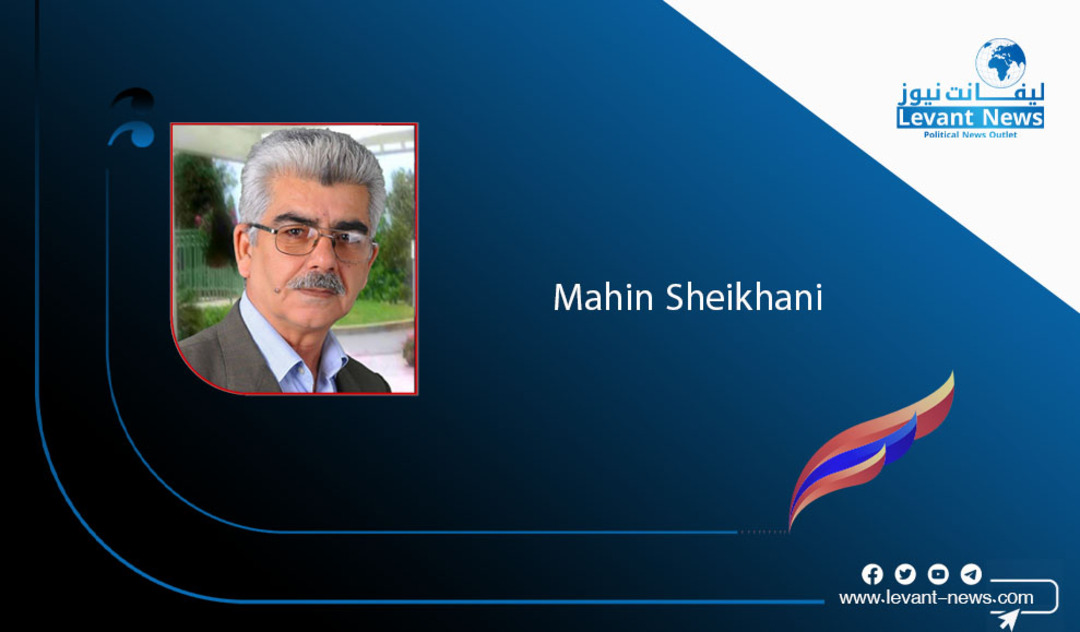-
When Justice Becomes a Hostage to Oil Pipelines

Introduction: A World That Sells Principles by the Kilo
While Western capitals chant “Justice for Palestine,” millions of Kurds ask: Why are other peoples granted the right to self-determination while every door remains shut in our faces? Why has the blood of over 11,000 Kurdish martyrs in the fight against ISIS become nothing more than a “bargaining chip” between Ankara and Washington?
The answer is simpler than you think: in international politics, morality has no place. There’s only oil, gas, and pipeline routes that redraw maps.
Section I: The West and Its Double Standards
1. Principles as Shaky as Oil Prices
The West boasts of supporting self-determination—so long as it doesn't upset regimes controlling energy routes.
Kosovo (1999): Seceded with NATO backing—no oil, and no neighbor named Turkey.
Catalonia (2017): Peaceful separation rejected—Madrid is an economic ally.
Kurdistan (2017): Referendum crushed after Erdoğan threatened: “Shut the valve... you’ll starve.”
2. Palestine vs. Kurdistan: A Stark Comparison
AspectPalestineKurdistan
Arab SupportFormal alliances and media backingSilence or open hostility
Western InterestsDiplomatic leverage on IsraelEconomic disaster via Ankara & Tehran
Victim NarrativeRooted since 1948Absent despite Halabja and Afrin
Conclusion: Recognizing Palestine is a pressure card against Tel Aviv. Recognizing Kurdistan? That’s confronting Turkey (a NATO member) and Iran (key to the nuclear deal).
Section II: Kurdistan... The Eternal Victim of Geography
1. The Lausanne Curse Lives On
Sèvres 1920: Promised a Kurdish state.
Lausanne 1923: That promise was traded for “economic peace” with Turkey.
Since then, Kurds have become the largest stateless nation: 50 million people without political identity.
2. Sacrifices with No Reward
In the war against ISIS, Kurds sacrificed over 11,000 fighters to protect the world from terrorism.
The result? Economic blockade, Turkish strikes, and deafening Western silence.
3. Why Are They Afraid of Kurdistan?
Turkey: Sees any Kurdish autonomy as a “virus” that could infect its 25 million Kurds.
Iran: Fears the spread of rebellion to Mahabad and Sanandaj.
The West: Afraid to lose air bases like Incirlik if Erdoğan gets upset.
Section III: Influence Maps Trump Justice Maps
1. Oil Is the Only Passport to Sovereignty
Iraqi Kurdistan: Produces 450,000 barrels of oil daily—but cannot sell without Ankara’s approval.
Rojava: Controls 60% of Syria’s oil—but faces a dual siege (Turkey + Damascus).
2. Gas Is the Hidden Veto Power
Europe, while lamenting the plight of oppressed peoples, relies on Russian and Qatari gas. Would it dare upset Turkey, home to the TANAP pipeline? Unthinkable.
Conclusion: The Bitter Truth
In the Middle East, justice is not a right—it’s a commodity sold at the oil auction.
To the West, Kurdistan is nothing more than a "geopolitical headache"—despite the fact that a stable Kurdish entity could end the border chaos that breeds terrorism.
The world has two choices:
A free Kurdistan that ends a century of injustice.
Or continued support for repressive regimes that breed extremism and export it to the world.
— Mahin Sheikhani
Tags
You May Also Like
Popular Posts
Caricature
opinion
Report
ads
Newsletter
Subscribe to our mailing list to get the new updates!




















